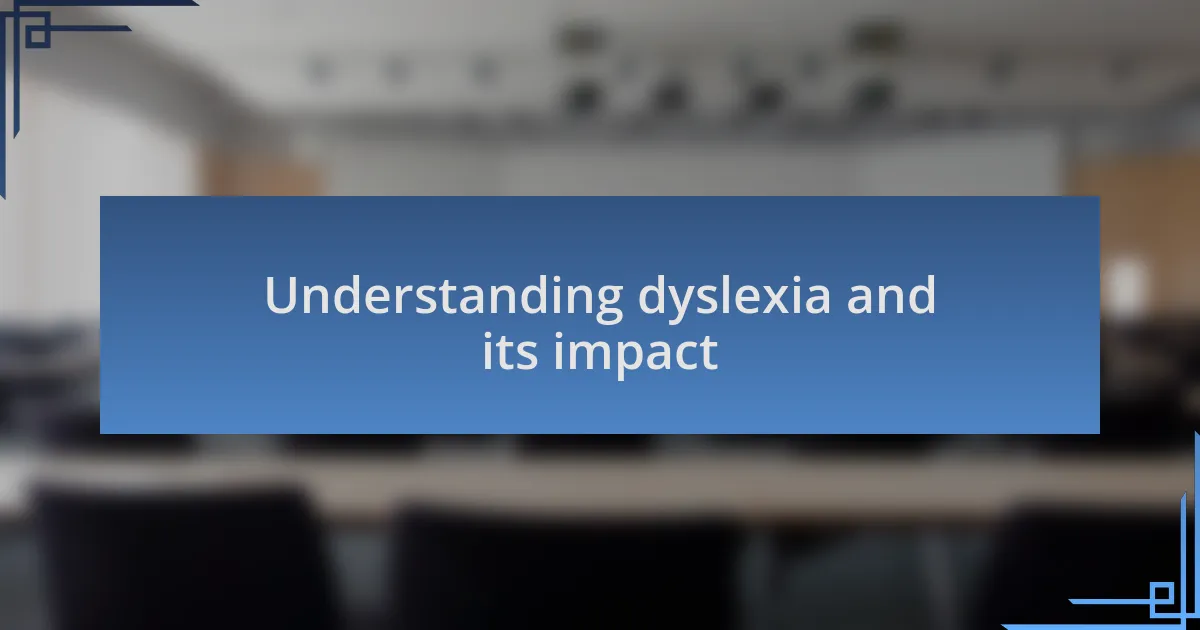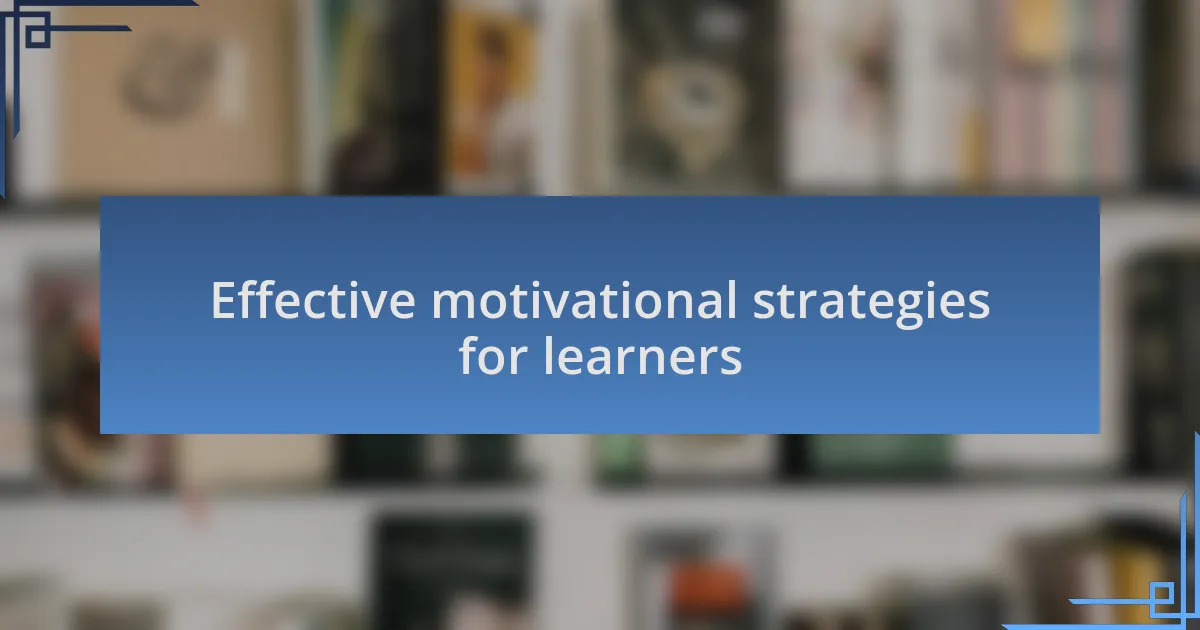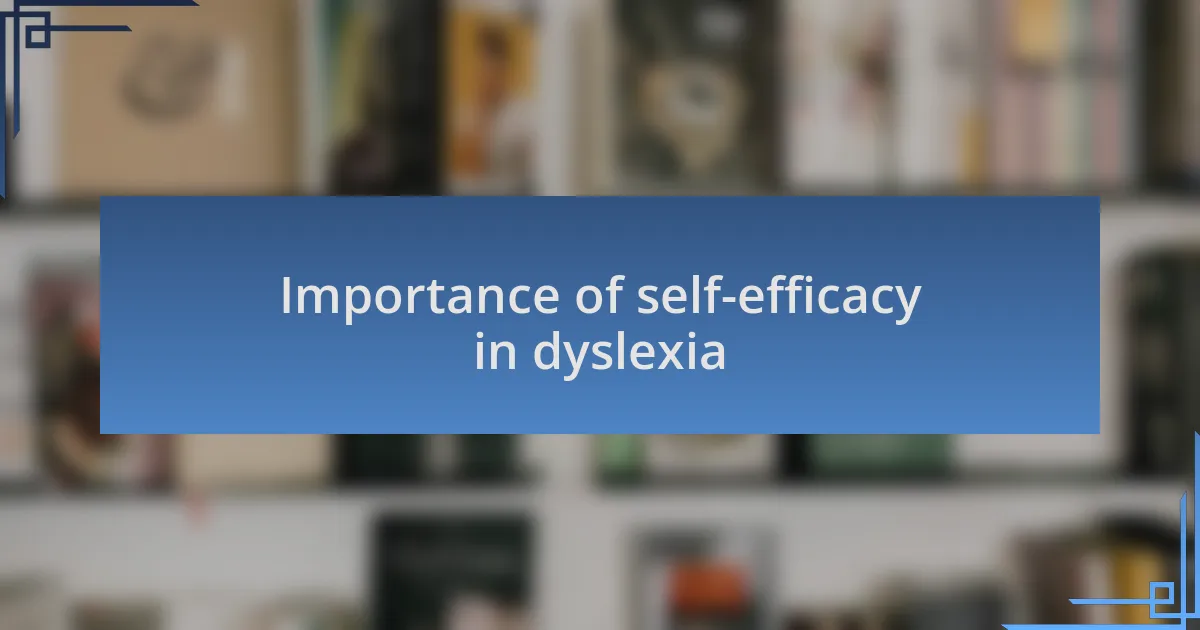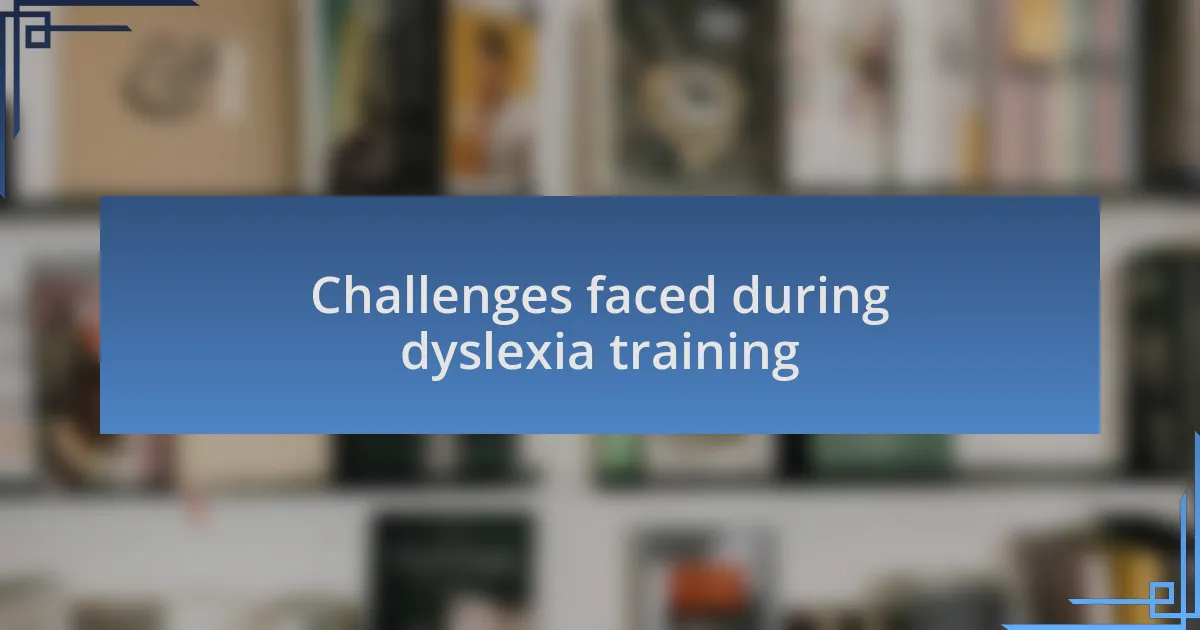Key takeaways:
- Dyslexia is not a reflection of intelligence but a unique way of processing information, and emotional support can significantly impact a learner’s journey.
- Setting small, achievable goals and using positive reinforcement can enhance motivation and build confidence in learners with dyslexia.
- Self-efficacy is crucial; celebrating small victories fosters belief in one’s abilities and encourages persistence in overcoming challenges.
- Challenges in traditional teaching methods emphasize the need for supportive and adaptive learning environments that accommodate diverse learning styles.

Understanding dyslexia and its impact
Dyslexia is more than just difficulty in reading; it often feels like navigating a maze where words shift and change at every turn. I remember struggling to keep up in class, feeling a mix of frustration and embarrassment as my peers read aloud with ease. How many times have you felt that same sinking feeling when facing a page full of text, knowing that others were consuming it effortlessly?
The emotional impact of dyslexia can be profound, affecting self-esteem and confidence. I recall the overwhelming sense of defeat when I mispronounced simple words in front of my classmates. Did you ever find yourself avoiding situations where reading was required, just to sidestep the fear of judgment? For many, the fear of making mistakes can overshadow the desire to learn, creating a cycle that’s tough to break.
Understanding dyslexia means acknowledging that it’s not a reflection of intelligence; it’s a unique way of processing information. I’ve seen the difference it makes when someone finally receives the right support, transforming their struggle into strength. Have you felt that shift too, when someone believed in you despite the challenges? It’s these supportive moments that can turn a daunting journey into one filled with hope and potential.

Effective motivational strategies for learners
Effective motivational strategies can make a significant difference for learners facing challenges like dyslexia. I discovered that setting small, achievable goals helped me build confidence. There was a time when I aimed to read one page without feeling overwhelmed, celebrating that success with a simple “I did it!” moment. Have you tried breaking tasks into smaller parts? It can transform the journey from daunting to doable.
Incorporating positive reinforcement was another strategy that worked wonders for me. I remember when my teacher praised my effort rather than just the outcome; it made me feel seen and appreciated. Each compliment felt like a little boost, encouraging me to tackle the next challenge. Isn’t it amazing how a few kind words can light up a learner’s motivation?
Visual aids and interactive tools also played a crucial role in capturing my interest. I vividly recall using colorful charts and games to make learning more engaging. It was through these fun approaches that I found myself wanting to dive deeper into reading and writing. Have you experienced a shift in enthusiasm when learning became playful? Those moments can be game-changers in a learner’s path.

Importance of self-efficacy in dyslexia
Building self-efficacy is essential for those of us with dyslexia. I remember the first time I completed a reading task without any interruptions; it was a small victory, but it felt monumental to me. That accomplishment ignited a belief in my abilities, proving that persistence could yield results. How crucial do you think it is to celebrate these small wins?
The belief in one’s abilities can significantly transform the learning experience. There was a time when I doubted my capacity to excel at writing. However, when I focused on the progress I was making rather than the mistakes, my self-confidence blossomed. This shift didn’t just enhance my skills; it propelled me forward and encouraged me to embrace challenges with open arms. Can you think of a moment when a small change in perspective made a big impact?
Self-efficacy isn’t just about feeling good; it’s a vital part of tackling the challenges that dyslexia brings. I learned that when I believed I could improve, I was more likely to seek out help and try new strategies. There were instances where I struggled, but reminding myself that I was capable helped me keep going. Isn’t it fascinating how our mindset can shape our journey through learning?

Challenges faced during dyslexia training
Navigating the challenges during dyslexia training can feel overwhelming at times. I distinctly recall a moment when trying to grasp phonics turned into an emotional rollercoaster; each mispronounced word felt like a personal setback. I often wondered, why was this so hard for me when it seemed effortless for my classmates?
Additionally, the frustration of traditional teaching methods often clashed with my learning style. I remember sitting in a classroom, feeling disconnected as methods focused heavily on rote memorization instead of practical application. It really struck me that if I didn’t adapt, I’d miss out on a world of engaging content—did anyone else feel that dissonance between how they learned and how they were taught?
Lastly, the emotional toll of repeated challenges can be discouraging. I think about the times I avoided participating in discussions due to my fear of making mistakes. Reflecting on that, I recognize how important it is to create a supportive environment—it made all the difference when I found my voice and discovered that vulnerability in learning is also a path to growth. Have you ever felt that hesitance and found a way to push through?